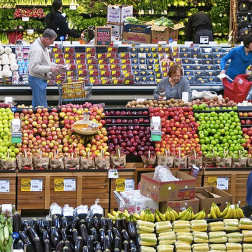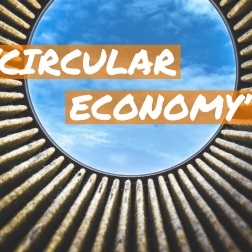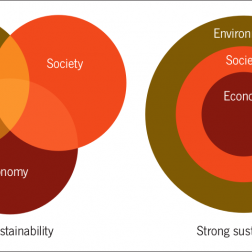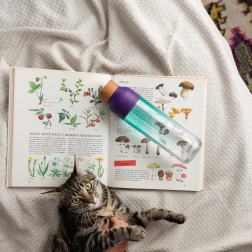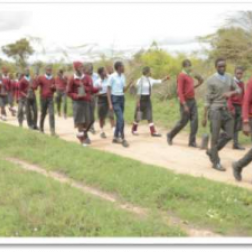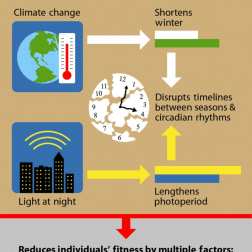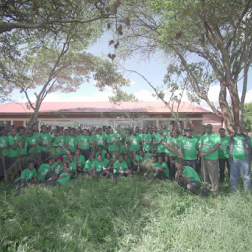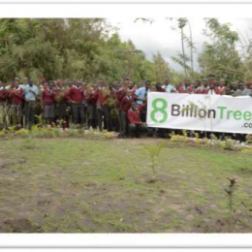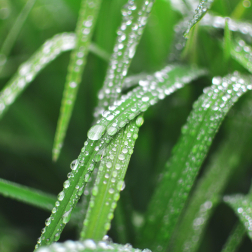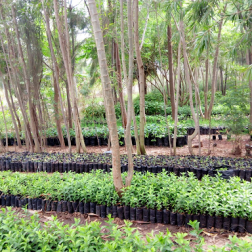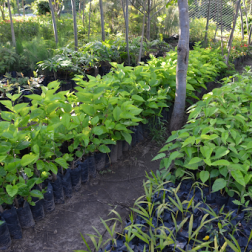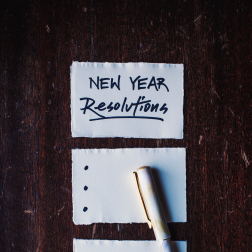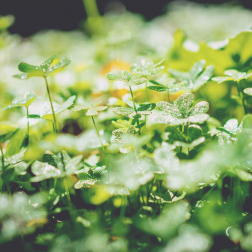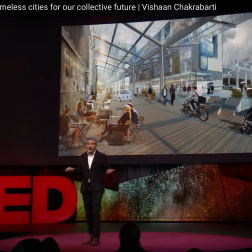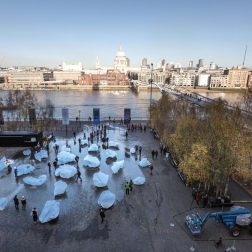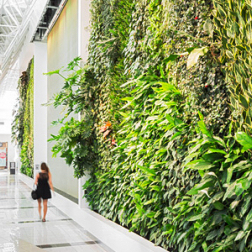Get the Student perspective • Learn from School Professionals • Read school Success Stories • You can blog too! Learn More
-
Supermarkets strategically make customers buy more to the extent that Black Friday stores are envious. However, who is to blame for the food waste that follows, consumers or supermarkets? To find out, GSA Intern Ava article dissects the findings of insightful research. moreComments Sharein Students on 10/11/2021 12:18 PM
-
New GSA Student intern Haen Jennie Cho explores the concept of a 'Circular Economy' and why it's so important in the modern world. moreComments Sharein Students on 03/25/2021 10:39 AM
-
Environmentalism, sustainability, and social justice are terms often used in relation to and connected with each other. In this post I talk about each of these terms and my relationship throughout my life with them. moreComments Sharein Students on 03/12/2021 01:25 PM
-
Previously, when I thought of a “perfect” environmentalist, I pictured someone who composts every day, leaves zero waste, bikes and walks everywhere, and has a minimalist closet of only thrifted clothes. But I realize now that just like everything else in life, achieving “perfection” is impossible. Even the ideal environmentalist I just described is not perfect. Read on to see why imperfections make better environmentalists. moreComments Sharein Students on 03/05/2021 09:00 AM
-
In Part V, the final part of this blog series, we discuss Sam’s future aspirations, along with how individuals can help support tree planting initiatives. moreComments Sharein Students on 02/22/2021 09:30 AM
-
Don’t let the seemingly long and fancy word “photoperiodism” throw you off from reading this blog! Though it may sound complex and full of syllables, the definition is simple. ‘Photo’ means light and ‘period’ means length, so together the word photoperiod just refers to how much sunlight plants get per day (how long the daylight is). ... moreComments Sharein Students on 02/17/2021 10:01 AM
-
In Part IV of this blog series, we learn more about the #greenschoolsinitiative, and the challenges and successes of this enormous tree-planting project. moreComments Sharein Students on 02/15/2021 09:09 AM
-
In Part III of this blog series, we learn about the 8 Billion Trees project, and the impact of Sam Mutua’s work with students in Kenya. moreComments Sharein Students on 02/08/2021 09:30 AM
-
Stormwater runoff is a huge issue for water systems, people, plants, and animals. Usually, runoff is filtered by soil before spreading. However, many watersheds (water bodies that drain into several rivers and streams) have become urbanized, meaning these locations now contain concrete, which is an impervious surface. Thus, stormwater in these locations pick up pollutants such as fertilizers, bacteria, pesticides, and petroleum by-products from cars and spread these pollutants across land and into rivers, polluting these areas. Rain gardens are a great, cost-effective way to reduce runoff! Read on to learn how you can bring them to your community! moreComments Sharein Students on 02/05/2021 09:00 AM
-
GSA Intern Ava interviews Sam Mutua, an everyday sustainability hero who runs the Konza Greens Nursery project in Kenya - a program that plants trees and educates youth in partnership with 8 Billion trees. In Part II of this blog series, Sam Mutua shares his thoughts on the challenges of climate change and environmental destruction, as well as some ways to address them. moreComments Sharein Students on 02/01/2021 09:30 AM
-
GSA Intern Ava interviews Sam Mutua, an everyday sustainability hero who runs the Konza Greens Nursery project in Kenya - a program that plants trees and educates youth in partnership with 8 Billion trees. In Part I of this blog series, Sam shares the beginnings of his journey to becoming an everyday sustainability hero. moreComments Sharein Students on 01/29/2021 09:00 AM
-
Calling all educators to join the Global School Advisory Committee: a diverse committee that will help guide the building of new FREE educational materials! moreComments Sharein News & Announcements on 01/28/2021 10:27 AM
-
Let’s talk about some of the accomplishments of 2020 and how to move into the new year with sustainable goals and attitudes. moreComments Sharein Students on 01/21/2021 09:21 AM
-
Most people regard clovers as weeds among grass lawns, but did you know that clover lawns are much better for the environment? Benefits of clover lawns include less fertilizer use, less mowing needed, and less watering. Read on to learn more about the consequences of grass lawns and the benefits of clover ones! moreComments Sharein Students on 01/07/2021 09:26 AM
-
Flint, Michigan is notorious for the water crisis that started in 2014. The city changed its water source to the Flint River to save money, but they did not adequately test the water or add corrosion controls to ensure people’s safety. The health of Flint residents, including children, was put at high risk. What happened in the city of Flint is not a unique case or isolated issue. Clean drinking water should be a fundamental right for everyone, but globally, 1 in 3 people do not have access to safe drinking water. moreComments Sharein Students on 12/29/2020 08:21 AM
-
The structures of our cities influence how their citizens make decisions. Let's build cities that incentivize sustainable behavior! moreComments Sharein Students on 12/11/2020 09:14 AM
-
A down to earth group of students avid to promote sustainability. By putting our own eco spin on the word further, we strive to expand environmentalism to a wider audience, through our connections to several academic subjects. After all, becoming an environmental advocate is not a "one size fits all" approach. moreComments Sharein Students on 12/03/2020 06:15 PM
-
Leading a more sustainable lifestyle doesn’t necessarily have to involve buying a new bamboo toothbrush or installing solar panels. If you’re on a budget, there are still ways to be more sustainable! Here are some free and low-cost zero waste swaps you can make right now! moreComments Sharein Students on 11/29/2020 11:13 AM
-
The climate crisis requires action from multiple sides if it’s going to be tackled, and art is a surprising way to push the movement forward. If insightful environmental art can bring to light the urgent need for climate action, then citizens will feel more inclined to push forward the climate agenda to politicians, causing politicians to feel ongoing pressure from citizens to act. And this is exactly what Danish artist Olafur Eliasson is doing. moreComments Sharein Students on 11/23/2020 10:19 AM
-
Redesigning schools is expensive and during the age of COVID-19 more short term solutions are needed to the lack of nature in our lives. How can biophilic design themes help make student's experience more valuable, and how can we do this "on budget"? moreComments Sharein Students on 11/13/2020 10:26 AM
